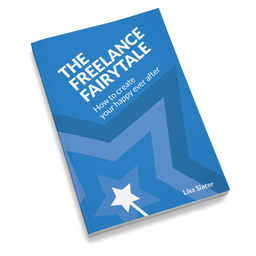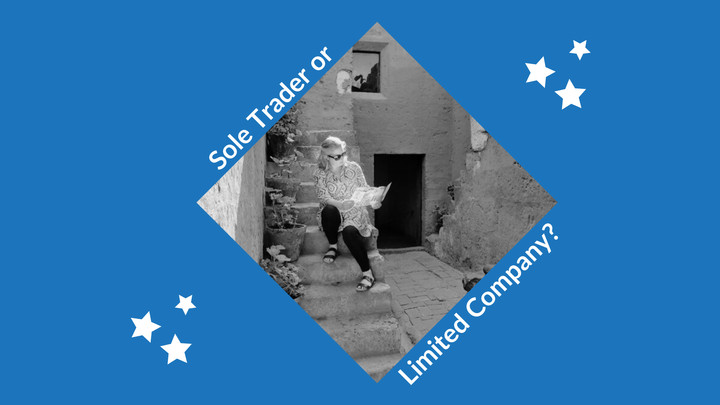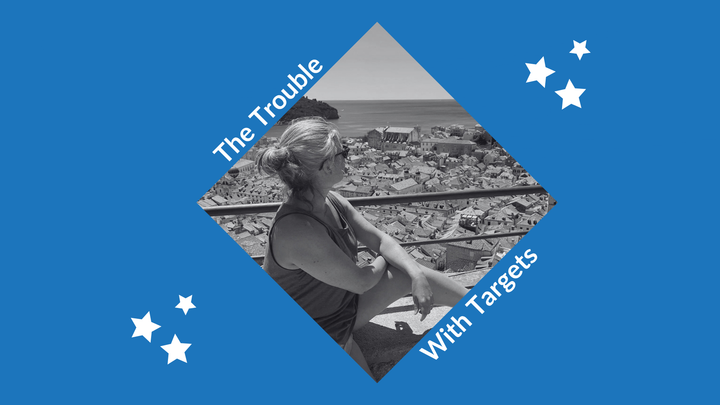How To Get The Most From Networking
Networking is a great way to meet new people, build your network, and get known in your local area. But it’s not for everyone. And it’s not as simple as just turning up and smiling.

I met my first client at a networking event.
I had no experience – I was just starting out. I was one assignment into a copywriting course, and I’d set up a Twitter account ready for when I finished the course and launched my business.
But then I got invited to a networking event.
I was nervous as hell, had no idea what to expect, and felt like a complete imposter since I didn’t even have a business yet. But off I went anyway.
I got talking to a marketing consultant, and it just so happened he was in the process of having a new website built so he needed some copy. A week later, I met him at his office to discuss the project and, just like that, I had my first client.
One of the first things I did after quitting my job to go full-time with my business was join a networking group, and I stayed a member for three years.
In my first year as a full-time freelancer, over 80% of my new business came through networking and referrals from people in my group.
But not everyone will get results like that from networking.
I got lucky at that first event – right place, right time. But getting clients isn’t always that easy (especially not at your first event). I’ve attended many, many events since then, and not all of them have been as positive.
That’s not to say networking isn’t worth doing. It’s a great way to meet new people, build your network, and get known in your local area.
But it’s not for everyone. And it’s not as simple as just turning up and smiling.
So is it worth the effort? Should you bother including it in your marketing strategy?
Based on my story above, you’d think I’d be all for it. And while I'd definitely recommend it to some people, I wouldn't recommend it to everyone.
I had an advantage.
I’ve always worked in customer-facing jobs and sales roles. I’m used to making conversation with strangers. I know how to fill awkward silences. And I feel comfortable talking about and promoting my services.
But not everyone is a natural networker. Not everyone can make a good first impression. Not everyone can read people to know when to talk and when to listen. Not everyone feels comfortable selling themself.
For some people, it takes practice.
It doesn’t mean they can’t get good at networking – just that it might take longer to feel at ease with it and get results from it.
So if networking isn’t for you because you know you’ll never enjoy it, why put yourself through it?
By all means, try out a couple of different networking events to see if any suit you, but don’t worry if you decide networking sucks. There are other ways to market your business.
Types of networking and events
There are different types of networking events and opportunities, and you might find you're more suited to some types of event more than others.
Below is a very general overview of the most common types of events.
Casual contact (mix and mingle)
Casual contact events don’t require you to make any commitment other than to turn up.
Some events are aimed at a certain sector, industry or size/type of business. Some are open to businesses of all sectors and sizes. Some are free, some charge a small fee. Some events will involve the host or sponsor giving a short presentation to promote their business. Most events last a couple of hours.
These types of events are more casual, so you aren’t expected to pitch to everyone in the room, and nobody will be trying to commit you to becoming a member.
Sometimes the host will introduce you to other attendees, but quite often, you have to be proactive in starting conversations. If you're nervous, a good place to start is at the coffee station – most people head there first.
Pros: No pressure to join or do any public speaking. Can be a great way to meet other local business owners and get the word out about your business.
Cons: Attendees can vary from one event to the next. You won’t always know who will be there, and it can be harder to form meaningful connections. And you will usually have to be proactive in starting conversations.
Strong contact groups (referral/membership)
Strong contact groups are groups that meet regularly. You can usually attend once or twice as a visitor or guest before committing to a full membership.
These types of networking groups often require members to make some kind of commitment, such as attending regular meetings, inviting visitors, or bringing referrals for other members.
Sometimes they have a lock-out policy where they will only allow one member from each industry.
One of the most well-known organisations of this type is Business Network International (BNI). There are thousands of BNI groups around the world. They all follow a similar format, but each group is slightly different because of the members in the group.
I was a member of BNI for three years, and I made some great friends and got introduced to a lot of new clients (some are still clients now). But it is a big commitment and a lot of people find it too formulaic and strict.
Pros: You meet with other members regularly, which allows you to develop stronger relationships. It can be a great way to get referrals and build connections and friendships with other business owners.
Cons: Being a member of a strong contact group can involve a big investment of time and money. You have to agree to the terms, which can include meeting minimum requirements in terms of attendance, inviting visitors, and bringing referrals for other members.
Professional association
A professional association is a group consisting of people who work in the same field – for example, accountants, educators, HR professionals, manufacturers, authors and so on.
Members of these associations can often access valuable industry insights, news, learning, training courses, and networking opportunities.
Some professional associations charge a membership fee and require members to meet certain criteria (such as holding specific qualifications).
As well as professional associations, there are also lots of informal industry meetups. For example, #CopywritersUnite is an informal social event organised by copywriters for copywriters. WordPress meetup groups are locally organised groups that meet face-to-face to discuss their WordPress experiences.
Although you could essentially be networking with your “competitors”, it is possible you will meet people who can refer business to you when they have no capacity or when the client isn’t a right fit. This will depend on the industry you work in and how niche the events are.
Pros: Great way to meet other people in your industry and gain insight, share experience, and get advice from people who have “been there, done that”. There may be opportunities for collaboration or referrals.
Cons: Depending on your industry and the type of event, this type of networking might not be as good for finding clients, because you are networking with people who offer similar services.
Peer-to-peer groups (or advisory boards)
Peer-to-peer groups are usually made up of a small number of business owners with similar-sized businesses and often require a longer-term commitment or membership.
The idea is that you meet with other members regularly to share specific business challenges. Members provide advice and guidance on how to overcome the challenges and act as advisors for each other.
These types of events can sometimes include coaching and mentoring elements as well. The Alternative Board (TAB) is an example of this type of group.
Pros: Useful if you have a specific challenge or business issue you need help with, or you are ready to grow your business and want advice.
Cons: Because business owners are often sharing sensitive information, these types of groups tend to be member-only, and you probably won’t network with as many different people.
Speaker events, seminars or conferences
If you aren’t an experienced networker, these types of events can be a great way to build your confidence.
Everyone is there to listen to the speaker or speakers, so you all have something in common, which means you have a ready-made conversation point.
Plus, even if you don’t talk to anyone, you’ll probably still learn something from the presentation or seminar, which means you won’t have wasted your time.
I particularly like Atomicon and will be attending for the third time in 2026. It's a friendly, inclusive event with some great speakers and plenty of opportunities to network (if you feel up to it). I have a referral link, so you can find out more (and book a ticket if you fancy it). I do recommend booking early as the prices go up throughout the year:

Pros: You learn something. Plus, you have a conversation starter as you can talk about the speaker or the topic of the talk or seminar.
Cons: Some talks can end up being glorified sales pitches (not the case at Atomicon) - do a bit of research before signing up.
Online networking
If face-to-face networking isn’t your thing or there aren’t any local events that work for you, online networking is an option.
Online networking can involve live events where you speak directly to people via video. Or you can network with people using written content on platforms such as LinkedIn, Slack, Facebook or in private communities.
The biggest benefit of online networking is it allows you to connect with people around the world, rather than just in the nearby areas.
Pros: No travel time to and from events. Can be less daunting than in-person networking. Enables you to network with people around the globe.
Cons: Harder to build deep connections and make lasting impressions.
Exhibitions
Exhibitions provide an opportunity to practice your networking skills.
You can start conversations with exhibitors. Or if you are an exhibitor yourself, you can practice talking about your services to people who show an interest in your stand.
Some conferences and exhibitions have dedicated networking slots where you can mingle with other attendees.
Again, you have a ready-made conversation as you can talk about the event itself.
Pros: Not as daunting as some networking events as there is no pressure to speak to anyone – you can just enjoy the event.
Cons: Requires you to make conversation, so it can be easy to walk away without having spoken to anyone about your business.
Online communities/memberships
Another option if you don't fancy traditional networking is to join a community or membership, like mine.
These usually involve some kind of group sessions where you aren't specifically there to network, but will inevitably start to get to know other members. Plus, there is usually a host who helps the conversation along.
My membership includes two events per month - a co-working session and a lunch and learn. The co-working sessions are designed to help you make progress with your marketing and get feedback and insights from me and other members. The lunch and learns focus on a specific marketing topic, and I share my thoughts before opening it up to a Q&A and group discussion.
All my events are friendly, relaxed, and inclusive, with no pressure to talk if you don't want to (I can talk enough for everyone). I only ever have small numbers of attendees, and the sessions are super informal, so there's no snobbery.

Pros: Less formal than dedicated networking events, and an opportunity to learn stuff that will benefit your business. Get to know people gradually.
Cons: Not technically networking events, so not as many opportunities to promote your services.
How to get the best out of networking
Turning up at a networking event is only the first step. If you want to use networking to get more clients, you need to get good at it. Here are my top tips for getting the best out of networking.
Choose the right events
As I’ve outlined above, different types of events offer different things. So before rushing off to every event in town, take some time to figure out what you want from networking and which events are the best fit.
Do a bit of research into what types of events are on offer in your local area. Ask around, check sites like Eventbrite, do a Google search, or ask on social media.
Look for events where you can connect with similar businesses or your ideal clients. You don’t want to attend an event for CEOs of large corporations if you’re a freelancer who works with start-ups.
If you are new to networking and want to build your confidence, look for events that have been running for a while. These often have regular attendees or hosts who will be there to welcome you when you arrive.
If you are invited to an event, don’t feel obligated to attend without getting an idea of what to expect first.
And don’t let one bad experience put you off. Not all networking events are the same. You wouldn’t stop going to all restaurants just because you had a bad meal at one.
Prepare a “pitch”
Some events, such as BNI, involve all attendees giving a 60-second pitch to the group. If you aren’t prepared, this can catch you off guard.
Not all events require you to do this, so don’t panic if public speaking isn’t your thing. But equally, don’t let the idea of having to stand up put you off. Everyone who has ever had to stand up and pitch their business was nervous the first time.
But regardless of whether you have to pitch publicly or not, it’s worth preparing a response to the question “what do you do?”
If you’re not experienced at networking, I’d stick with being clear over clever. But be as specific as possible.
Instead of “I’m an accountant,” try “I offer accountancy services for tradespeople and construction firms.”
Instead of “I’m a copywriter, ” try “I specialise in writing website copy.”
Being specific about who you help or what you do is useful because it will get people thinking about who they could introduce you to that might need your help.
And keep it short - nobody there is interested in hearing your entire life story.
Be clear about who you’d like to connect with
Networking isn’t just about the people who are in the room, it’s about who they might be connected with.
Experienced networkers will often ask who you work with or what type of referrals or introductions you are looking for. Don’t say “anyone”. This isn’t helpful, and it won’t make you memorable.
If you are specific, you’re more likely to get introductions.
If you offer personal services, you can be specific about the type of person. For example, if you are a mortgage advisor, you might want introductions to first-time buyers.
If you work with businesses, be specific about sector, size, location or need.
And if you don’t have your ideal client nailed down, think about who would be a good introducer – for example, if you are a copywriter, you might want to connect with local web designers or marketing agencies.
Be interested to be interesting
Most people at a networking event have something to sell. But if everyone is there to sell and nobody is there to buy, it’s not going to work out well for anyone.
So don’t focus on pitching your services to people as soon as you meet them. There’s a phrase I love, which is “be interested to be interesting” – in other words, people will be more interested in what you have to say if you show an interest in them.
So ask them questions about their business. Ask who they’d like to be connected with. Be genuinely interested. They might not be your ideal client, but they could connect you to your ideal clients, or become a trusted supplier, mentor or friend.
Talk to as many people as possible
It’s very easy to go to an event and spend the whole time talking to the same one or two people.
Set yourself a target. Let’s say the networking part of the event is 90 minutes, and you dedicate 10 minutes to each conversation, that’s nine people you should be aiming to have conversations with.
Even if you find someone who is your perfect client, don’t hog their time. They are there to network, not just listen to you pitch your business. Arrange a follow-up call or meeting with them and then let them move on.
And if you find yourself cornered by someone desperate to sell to you, don’t be afraid to end the conversation. If you are interested in their services, give them your contact details and ask them to arrange a call.
Follow up
Follow up with everyone you meet, even if it’s just a simple “It was great to meet you today” message.
And if you’ve promised to send someone information or details, be sure to act on this.
The event itself is just the starting point. Following up is your chance to continue the conversation and form a relationship.
Just because someone didn’t show an interest in your services straight away doesn’t mean they won’t be interested later down the line.
Back up your networking with other marketing activity
Networking can be a great way to connect with potential customers, but don’t rely on it as your sole marketing strategy.
At the very least, make sure your website copy supports what you are telling people at networking events. Don’t give them conflicting messages about what you do.
It’s also useful to be active on at least one social media platform so people can connect with you after the event. They might not be ready to buy when you meet them, but if they consistently see your content on their feed, it helps you stay front of mind.
Networking is not a quick fix
As with any marketing activity, networking requires time and effort. Yes – you might get lucky at an event and meet someone who needs what you’re selling. But pinning your hopes on this happening every time is not a sensible strategy.
Unless you are going to commit to a particular group and put effort into building a referral network, you can’t rely on networking as your sole marketing activity.
Dipping in and out of it whenever business is quiet won’t generate consistent results.





